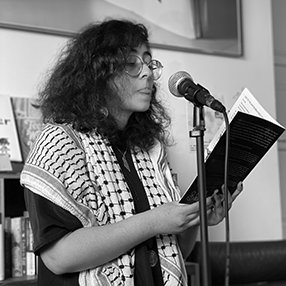After Mount Tamalpais, I Tell Etel Adnan About Supernatural
I make paintings and watercolors of Tamalpais. Again and again. Why do I insist? Am I trying to hold some image, to capture some meaning, to assert its presence, to measure myself to its timelessness, to fight, or to accept? —Etel Adnan, Journey to Mount Tamalpais
I understand, I tell her, the desire to not only return but to be consumed. I have had obsessions, I have been made small by those obsessions, I wonder if you would agree it is possible for something to be absolute but still unseen. I was Cassandra, once. I wanted dearly to go to the mountain. Instead of cliches, I design my pulse to loneliness anew. It’s different than ten years ago—I go outside, now, take its contradiction with me. Oh the most painful love-story of them all! These gaps between comprehension! I could never forget, no matter how many times they beg me to. The mountain was there before us and it will be there after. Yes, a return; each journey wrought another history, each day I try to capture its form; why do I insist? In lieu of a paintbrush, I sew my voice in its throat. In the Beginning, there was Blood, Horror, Myth, Obsession; and then there was Love, there was, I swear, when the static spilled! again and again, our eyes stained with its evidence, We find new proof uncovered on every return. We were all Cassandra, once, young and hysterical, oh, I hope you’ll understand I take it so seriously when I say the violence shifted subjects. Oh, we screamed! we screamed! We swore our eyes were true! Audience becomes the blood, the horror, the myth, the static, Again, and again, you said, again, and again, I say, again, again.
Copyright © 2024 by Summer Farah. Originally published in Poem-a-Day on July 10, 2024, by the Academy of American Poets.
“This is the anchor piece for a series of prose poems to/after/inspired by Etel Adnan. What started as a joke when reading her legendary writing on art (thinking, what would she think of Zelda?) has turned into an ongoing sequence that interrogates my own obsessive relationships toward art, pop culture, and parasocial tendencies. The WB/CW series Supernatural is perhaps my most violent obsession. It is a show rife with misogyny and racism. Its longevity is dependent on a hot-and-cold, combative relationship with its queer fans. Yet loving it has given me two of the most important gifts of my life: friendship and poetry. I return to its fifteen seasons as often as Etel returned to Mount Tamalpais.”
—Summer Farah

